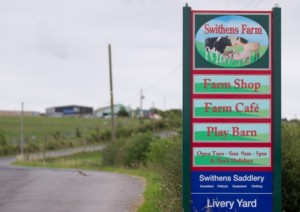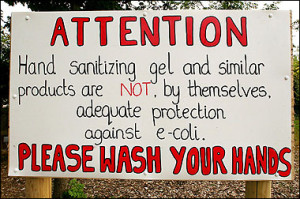The owners of a petting farm at the centre of a parasitic disease outbreak that has left dozens ill said they are working with the local authority to investigate its cause.
 Ian and Angela Broadhead, who run Swithens Farm, in Rothwell, Leeds, have reassured visitors that their “health, safety and welfare” is of “utmost importance” to them as they continue to work with public health experts.
Ian and Angela Broadhead, who run Swithens Farm, in Rothwell, Leeds, have reassured visitors that their “health, safety and welfare” is of “utmost importance” to them as they continue to work with public health experts.
The petting farm has been linked to 29 cases of cryptosporidiosis, and two cases of E.coli O157.
The Broadhead family said: “As a small family-run business the health, safety and welfare of our visitors is of utmost importance to us all.
 Between January and May 2015 around 130 people were affected by outbreaks of cryptosporidiosis linked to petting farms in England.
Between January and May 2015 around 130 people were affected by outbreaks of cryptosporidiosis linked to petting farms in England.
PHE has advised all visitors to wash their hands after touching animals.
Handwashing, however, is never enough.
A table of petting zoo outbreaks is available at https://barfblog.com/wp-content/uploads/2016/05/Petting-Zoo-Outbreaks-Table-5-5-16.xlsx
Best practices for planning events encouraging human-animal interations
Zoonoses and Public Health 62:90-99
Erdozain , K. KuKanich , B. Chapman and D. Powell, 2015
http://onlinelibrary.wiley.com/doi/10.1111/zph.12117/abstract?deniedAccess
Educational events encouraging human–animal interaction include the risk of zoonotic disease transmission. ‘It is estimated that 14% of all disease in the USA caused by Campylobacter spp., Cryptosporidium spp., Shiga toxin-producing Escherichia coli (STEC) O157, non-O157 STECs, Listeria monocytogenes, nontyphoidal Salmonella enterica and Yersinia enterocolitica were attributable to animal contact. This article reviews best practices for organizing events where human–animal interactions are encouraged, with the objective of lowering the risk of zoonotic disease transmission.


